Zachary Wojtowicz
Push and Pull: A Framework for Measuring Attentional Agency
May 23, 2024

Abstract:We propose a framework for measuring attentional agency - the ability to allocate one's attention according to personal desires, goals, and intentions - on digital platforms. Platforms extend people's limited powers of attention by extrapolating their preferences to large collections of previously unconsidered informational objects. However, platforms typically also allow people to influence one another's attention. We introduce a formal framework for measuring how much a given platform empowers people to both pull information into their own attentional field and push information into the attentional fields of others. We also use these definitions to shed light on the implications of generative foundation models, which enable users to bypass the implicit "attentional bargain" that underlies embedded advertising and other methods for capturing economic value from informational goods. We conclude with a set of policy strategies that can be used to understand and reshape the distribution of attentional agency online.
From Probability to Consilience: How Explanatory Values Implement Bayesian Reasoning
Jun 03, 2020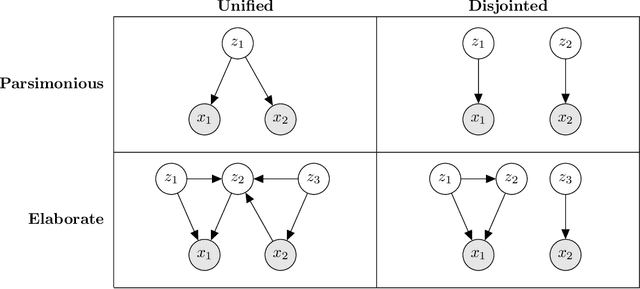
Abstract:Recent work in cognitive science has uncovered a diversity of explanatory values, or dimensions along which we judge explanations as better or worse. We propose a Bayesian account of how these values fit together to guide explanation. The resulting taxonomy provides a set of predictors for which explanations people prefer and shows how core values from psychology, statistics, and the philosophy of science emerge from a common mathematical framework. In addition to operationalizing the explanatory virtues associated with, for example, scientific argument-making, this framework also enables us to reinterpret the explanatory vices that drive conspiracy theories, delusions, and extremist ideologies.
Lévy Flights of the Collective Imagination
Dec 10, 2018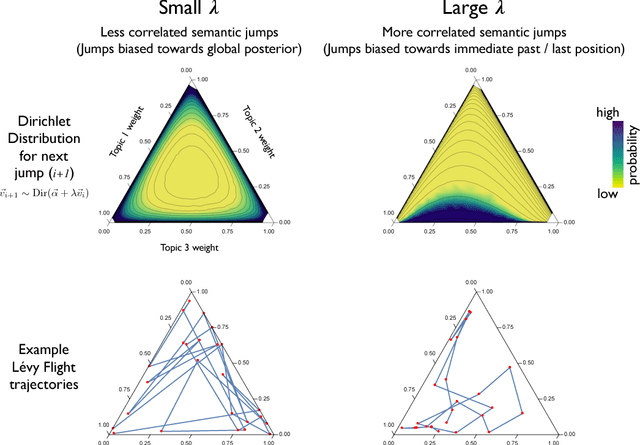
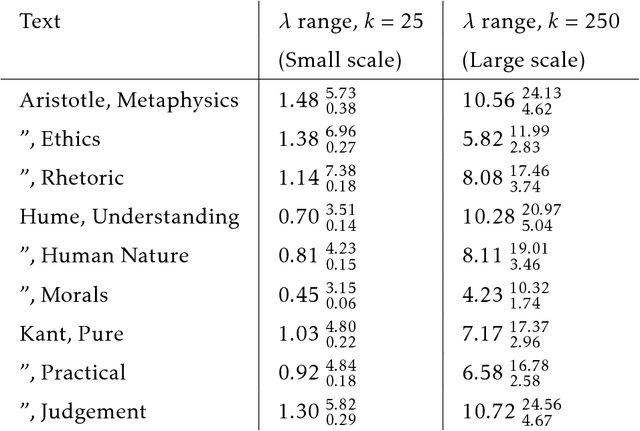
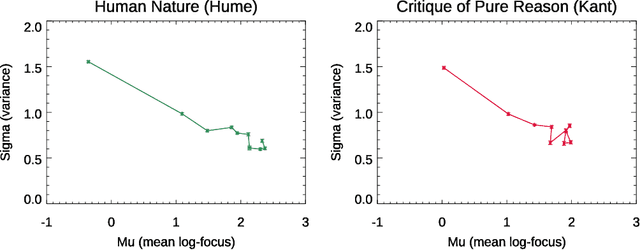
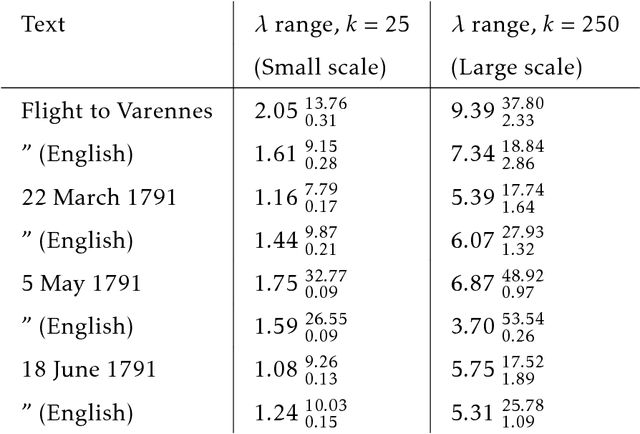
Abstract:We present a structured random-walk model that captures key aspects of how people communicate in groups. Our model takes the form of a correlated L\'{e}vy flight that quantifies the balance between focused discussion of an idea and long-distance leaps in semantic space. We apply our model to three cases of increasing structural complexity: philosophical texts by Aristotle, Hume, and Kant; four days of parliamentary debate during the French Revolution; and branching comment trees on the discussion website Reddit. In the philosophical and parliamentary cases, the model parameters that describe this balance converge under coarse-graining to limit regions that demonstrate the emergence of large-scale structure, a result which is robust to translation between languages. Meanwhile, we find that the political forum we consider on Reddit exhibits a debate-like pattern, while communities dedicated to the discussion of science and news show much less temporal order, and may make use of the emergent, tree-like topology of comment replies to structure their epistemic explorations. Our model allows us to quantify the ways in which social technologies such as parliamentary procedures and online commenting systems shape the joint exploration of ideas.
Modeling Online Discourse with Coupled Distributed Topics
Oct 01, 2018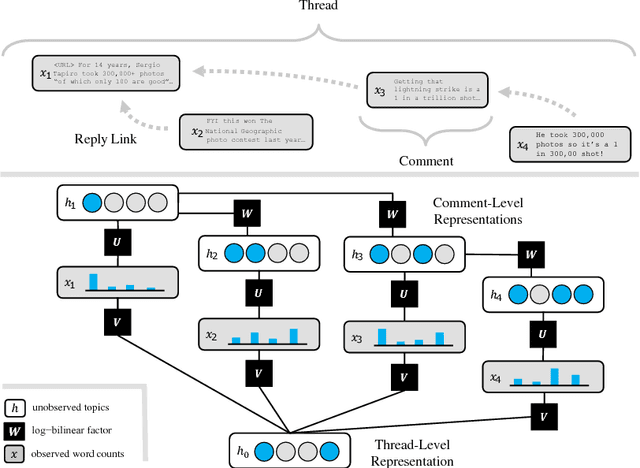
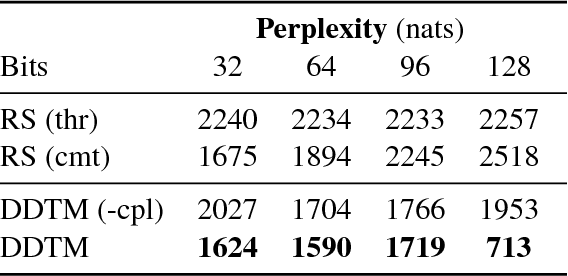
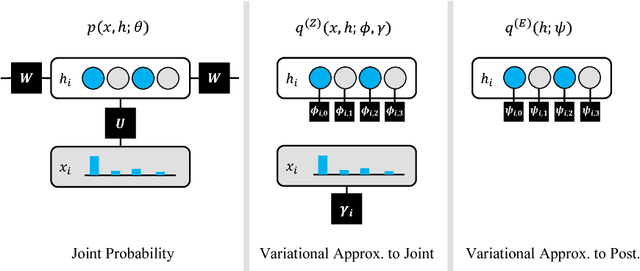
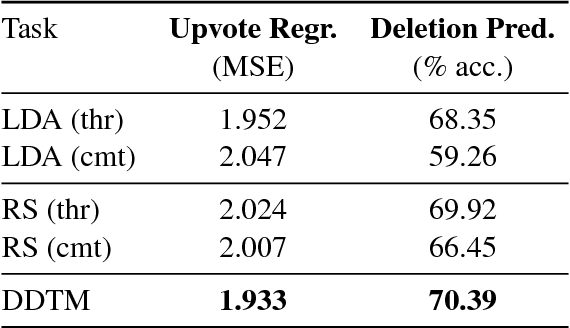
Abstract:In this paper, we propose a deep, globally normalized topic model that incorporates structural relationships connecting documents in socially generated corpora, such as online forums. Our model (1) captures discursive interactions along observed reply links in addition to traditional topic information, and (2) incorporates latent distributed representations arranged in a deep architecture, which enables a GPU-based mean-field inference procedure that scales efficiently to large data. We apply our model to a new social media dataset consisting of 13M comments mined from the popular internet forum Reddit, a domain that poses significant challenges to models that do not account for relationships connecting user comments. We evaluate against existing methods across multiple metrics including perplexity and metadata prediction, and qualitatively analyze the learned interaction patterns.
 Add to Chrome
Add to Chrome Add to Firefox
Add to Firefox Add to Edge
Add to Edge